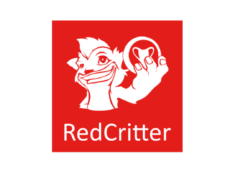
Language learning apps have come a long way since their inception. Once viewed as nothing more than educational games or half-baked tools to pick up conversational snippets in a new language, these apps are now considered highly effective resources that can provide strong foundations for someone who is new to learning a language.
While apps like Duolingo, Babbel, and Rosetta Stone are an excellent way to build a foundation in learning a language, combining them with travel has emerged as a fun and effective method to maximize your learning potential and achieve fluency in your target language in less time.
Laying A Foundation
Language learning apps can be fundamental in laying the foundation for language acquisition. Programs like Pimsleur and Babbel are perfect for memorizing vocabulary, as well as simple grammatical constructions. By turning learning into a quasi-game, these apps tend to make memorization fun and easy. In short, you are much more likely to retain information if you are enjoying yourself in the learning process.
And this isn’t just a hunch. In a leading study conducted by Shawn Loewen, a linguistics professor at Michigan State University, it was shown that using a language learning app for just 10 minutes per day improved every participant’s vocabulary and grammar skills. Yes, every participant.
However, that measure only considered rote memorization of new words. More impressively, 59% of participants improved their oral proficiency in the new language as well, disproving a long-held view that language learning apps do not help with conversational speaking skills. And that figure was even higher among participants that used the app for more than 10 minutes per day.
The bottom line? Language learning apps have been academically proven to be effective and can help to lay a solid foundation before actually diving into a new language. The key, however, is consistency in the usage of the language program, as well as taking the next step – real-world usage.
Practice, Practice, Practice
Using language learning apps can be effective for learning a language, but when combined with real-world practice, your ability to learn a language will improve drastically. This was the conclusion reached by Shawn Loewen, the linguistics professor heading the Michigan State study noted above, “if you’re going to use an app, by all means, do. But it’s also good to have opportunities where you can interact.”
It’s one thing to speak aloud to yourself and type answers into your phone, but communicating with real people will help fortify your speaking skills and give you insight into the way natives speak their language.
Communicating with natives in your target language is a highly efficient means of practice. Language apps can provide a nice base, but as Loewen puts it, “it’s much harder to take that knowledge and translate it into the ability to use language — to speak it, understand what you’re hearing, and respond in an appropriate way.”
The Immersion Effect
In addition to app usage and practicing speaking skills with native speakers, it has been shown that immersion is the single most effective way to increase your retention rate of new a language. According to research done by the Center for Advanced Research on Language Acquisition (CARLA), immersion can come with benefits like “academic achievement, language and literacy development… and cognitive skills.”
In other words, the absolute fastest way of learning a new language is to have your feet held to the proverbial fire. Of course, full immersion without any basis for understanding a language is a recipe for frustration, confusion, and ultimately, quitting.
Language Learning Apps + Travel
So how do you get the most out of learning a new language? Simple – you travel while continuing to use your app. This combines elements of all three effective means of language acquisition: basic skills acquired through app usage, practice, and immersion.
It is my hypothesis that this trifecta combination is truly the most effective means of quickly picking up a second or third language, without building frustration. You get the benefit of formal education through the app, consistent practice, and the benefits of immersion where you can hear and speak on a daily basis.
Plus, it’s just plain enjoyable to travel, so there’s that added benefit as well. If your target language is German, what better way to learn than to immerse yourself in the language while traveling around Bavaria for a month?
In Sum
Language apps are an effective learning tool that, when combined with real-world experiences, can drastically improve your language learning capabilities and help you to achieve fluency in your target language faster. While using apps alone can indeed help you familiarize yourself with the basics of a new language, the most effective way to learn a language is to immerse yourself in the culture while simultaneously using your language program.
Featured Image: Jeremy Bezanger, Unsplash.









No Comments